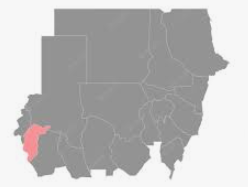Several internally displaced persons (IDPs) in Zalingei, the capital of Central Darfur State, have expressed their willingness to return to the Hasahisa camp, which they vacated after the clashes between the Sudanese army and the paramilitary Rapid Support Forces (RSF) in the last two months.
After the RSF took over control of Zalingei in October, several IDPs fled the Hasahisa camp and sought shelter in government institutions and public facilities.
Adel Abu Algasim, one of the IDPs who fled the camp, told Radio Tamazuj that he prefers to go back to the camp despite what he termed as “health and humanitarian challenges” at the camp. He called on the Rapid Support Forces to boost the security situation and provide water sources to ensure the return of the displaced persons.
Mohannad Mohammed, another IDP, expressed his desire to return to the camp. He, however, said his family was still hesitant to return to the camp.
Badr Yaqoub, another IDP, said: “Lack of drinking water and the lack of grain mills are the biggest obstacles to the return of the displaced families.”
Al-Tayeb Hasballah, one of the youth leaders at the camp who volunteers to secure the camp alongside the Rapid Support Forces, said that approximately 20 families have returned to the camp.
Hasaballah said they are working to assess the number of the returnees and protect their property. “The water network has resumed working, and the complaints of the displaced about insecurity west of the camp have already been responded to,” he said.
Sudan spiralled into war after soaring tensions between army chief General Abdel Fattah al-Burhan and RSF commander General Mohammed Hamdan Dagalo exploded into open fighting in mid-April.
The war broke out due to disagreements over plans for a political transition and the integration of the RSF into the army, four years after former ruler Omar al-Bashir was deposed in an uprising.
More than 12,000 people have been killed, according to a conservative estimate by the Armed Conflict and Event Data Project, while the United Nations says nearly 6.8 million have been forced to flee their homes.
To contact Radio Tamazuj with comments, news tips or information, write to radiotamazuj@gmail.com or use the contact form.




